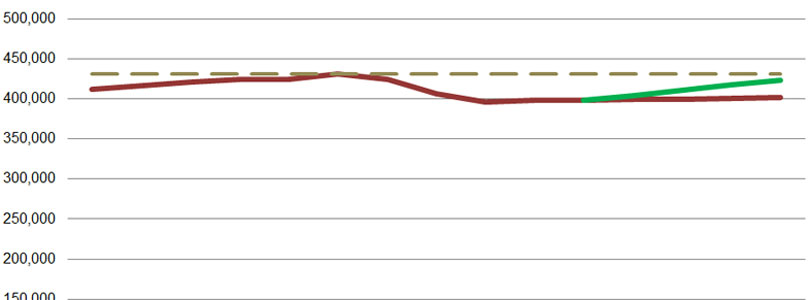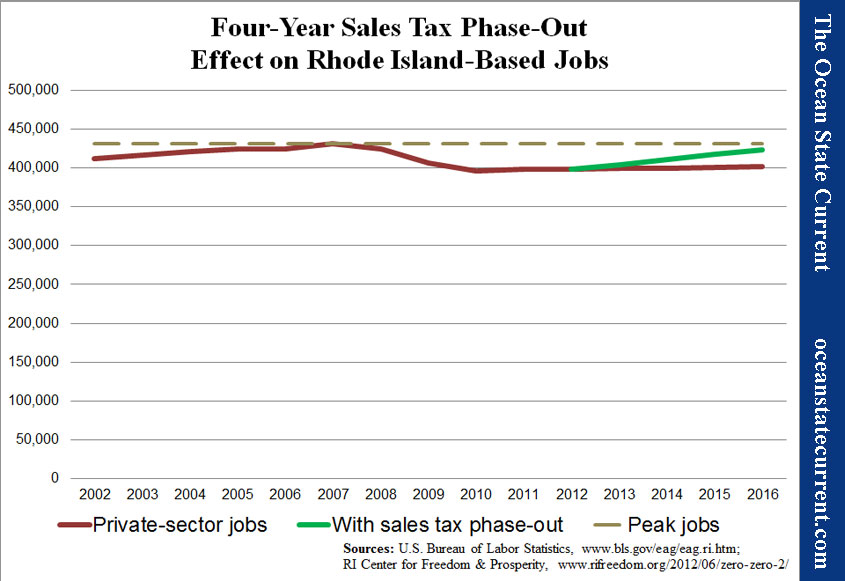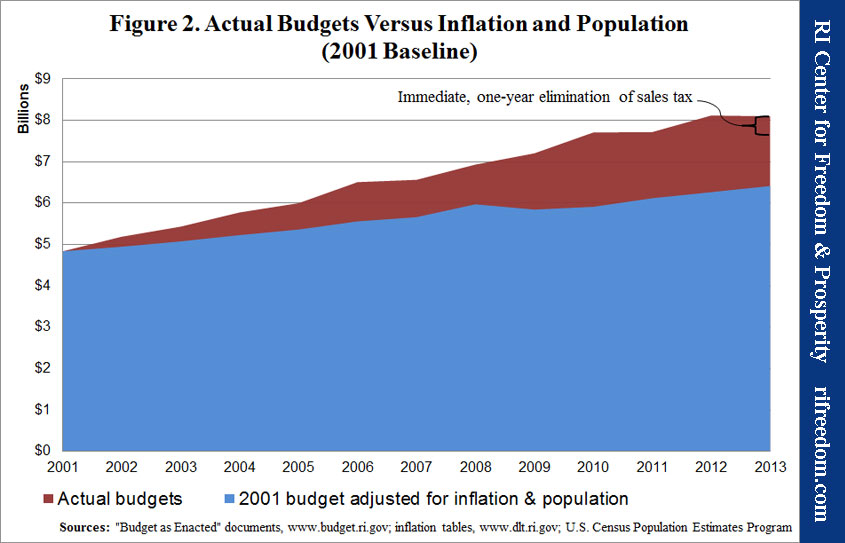Trading Budgetary Restraint for Economic Recovery
The RI Center for Freedom & Prosperity (of which the Ocean State Current is a subsidiary) today released a proposal for a four-year phase-out of the state’s sales tax. The first thought that one is apt to have upon hearing of it might be: “Is that even possible?”
The truth is that all sorts of public-policy innovations are possible in a mechanical sense. In this case, the sense of impossibility derives mainly from the Rhode Island’s inability to will a change of leadership style.
It comes down to a choice to be made. Where does Rhode Island want to place its priorities? Running the idea through the Center’s RI-STAMP economic model, produced by the Beacon Hill Institute, yields some very interesting results. Tens of thousands of new jobs and hundreds of millions in new economic activity weigh on one side of the scales across from what is realistically tolerable restraint in government spending.
The jobs are what catch my eye, though. Here’s what the trend for non-government jobs in the state would look like under the proposal’s projections.
The result that I didn’t expect, frankly, was that the policy proposal could return Rhode Island nearly to its 2007 peak level by 2016, versus stagnation in the absence of any action. More notable is that an even greater advance could be achieved almost immediately were the state to bite the bullet and eliminate the sales tax all at once. And in the context of inflation and population growth, the hit to the state government’s budget really isn’t prohibitively large, even all at once, as shown in this chart from the policy brief.
In effect, eliminating the sales tax would require returning the state’s total spending to a little below its 2011 level. Is that sort of shift in priorities possible? It ought to be.






